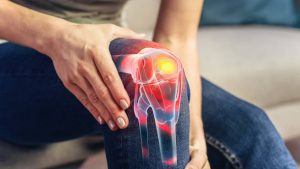Peptides: Reduces Joint Pain and Supports Mobility
Joint pain and mobility issues are common problems that affect people of all ages, particularly as they age or engage in intense physical activity. Whether caused by conditions like arthritis, overuse, injury, or natural wear and tear, joint pain can significantly impact quality of life and hinder physical performance. While traditional treatments such as medications, physical therapy, and surgery are often used to address joint pain, peptides have emerged as a promising alternative. Peptides, which are short chains of amino acids, play a vital role in supporting joint health, reducing pain, and improving mobility. This article explores how peptides work to reduce joint pain and support mobility, highlighting key peptides involved and their mechanisms.
Understanding Peptides and Joint Health
Peptides are naturally occurring or synthetically created chains of amino acids that serve as messengers in the body, regulating various biological functions. These include protein synthesis, tissue repair, and the regulation of inflammation. When it comes to joint health, specific peptides play a role in promoting the repair of damaged tissues, reducing inflammation, and enhancing the regeneration of cartilage, tendons, and ligaments. These actions contribute to reducing joint pain and improving mobility.
Joint pain is often a result of damaged cartilage, inflammation, or wakened connective tissues. Peptides can help address these issues by stimulating the body’s natural repair processes, improving joint lubrication, and strengthening the structures around the joints. As a result, peptides are increasingly being used as part of a comprehensive approach to joint health and mobility.
Key Peptides for Joint Pain Relief and Mobility Support
Several peptides are particularly effective in reducing joint pain and supporting mobility:
- BPC-157 (Body Protection Compound 157):BPC-157 is a synthetic peptide that has gained attention for its ability to heal tissues, including cartilage, tendons, and ligaments. It is derived from a protein found in the stomach and has powerful regenerative properties. BPC-157 promotes the healing of damaged tissues by stimulating blood flow to injured areas, enhancing the delivery of nutrients and oxygen to support tissue repair. By accelerating tissue regeneration and reducing inflammation, BPC-157 helps alleviate joint pain and improves mobility.This peptide is particularly effective for individuals suffering from tendonitis, ligament sprains, or injuries involving cartilage. It reduces pain and stiffness, enabling people to move more freely without discomfort.
- TB-500 (Thymosin Beta-4):TB-500 is another peptide with significant benefits for joint health. It is derived from thymosin beta-4, a naturally occurring protein in the body, and plays a crucial role in tissue repair and regeneration. TB-500 promotes the healing of damaged tissues, particularly in the joints, by increasing cell migration and encouraging the production of new, healthy cells.TB-500 also reduces inflammation and promotes collagen synthesis, which is essential for maintaining the structural integrity of connective tissues such as tendons and ligaments. By enhancing tissue regeneration and reducing inflammation, TB-500 helps reduce joint pain and improve flexibility, allowing individuals to move more comfortably.
- Collagen Peptides:Collagen is a primary structural protein found in tendons, ligaments, cartilage, and other connective tissues. As we age, collagen production naturally declines, leading to joint stiffness and pain. Collagen peptides, derived from hydrolyzed collagen, provide the building blocks needed for the synthesis of collagen in the body. By supporting collagen production, these peptides help maintain the health and elasticity of connective tissues, reducing joint pain and improving mobility.Collagen peptides are particularly effective for individuals with osteoarthritis, as they help restore the integrity of the cartilage, preventing further deterioration and reducing pain. These peptides also support joint lubrication, which is critical for pain-free movement.
- GHK-Cu (Copper Peptide):GHK-Cu is a naturally occurring peptide that has shown strong regenerative properties. It promotes the production of collagen, elastin, and other important structural proteins necessary for healthy joints and connective tissues. GHK-Cu accelerates tissue repair by increasing cellular regeneration, reducing inflammation, and supporting the healing of damaged cartilage.Copper also plays a role in collagen synthesis, and GHK-Cu aids in the rebuilding of cartilage in joints. As a result, GHK-Cu can reduce joint pain, improve joint function, and support long-term joint health.
- IGF-1 (Insulin-Like Growth Factor-1):IGF-1 is a peptide that plays a critical role in growth and tissue repair. It is produced in response to growth hormone release and stimulates the repair and regeneration of various tissues, including cartilage. IGF-1 promotes collagen synthesis and enhances the regeneration of damaged tissues, including those in the joints. By stimulating tissue growth and repair, IGF-1 reduces pain and inflammation, supporting joint mobility.IGF-1 has been found to be particularly helpful for people with degenerative joint conditions like osteoarthritis, where cartilage breakdown leads to pain and stiffness.
Mechanisms Behind Peptide Action on Joint Pain and Mobility
Peptides support joint health and alleviate pain through several key mechanisms:
- Tissue Regeneration:
Peptides like BPC-157 and TB-500 promote the regeneration of cartilage, tendons, and ligaments by stimulating cell migration and encouraging the production of new cells. This helps restore the integrity of damaged tissues and reduces pain caused by injuries or wear and tear. - Collagen Production:
Collagen is essential for joint health, providing strength and elasticity to cartilage and connective tissues. Peptides like collagen peptides and GHK-Cu stimulate collagen production, which helps maintain the structural integrity of joints, reduce pain, and improve flexibility.
- Anti-Inflammatory Effects:
Chronic inflammation is a major contributor to joint pain and stiffness. Peptides like BPC-157 and TB-500 reduce inflammation, creating an optimal environment for tissue healing. By reducing inflammation, these peptides help alleviate pain and improve joint mobility. - Improved Blood Flow:
Peptides like BPC-157 improve blood circulation to injured areas, enhancing the delivery of oxygen and nutrients necessary for tissue repair. This accelerated healing process reduces pain and improves joint function. - Enhanced Joint Lubrication:
Collagen peptides help support the production of synovial fluid, which lubricates the joints and reduces friction. This improved lubrication decreases joint pain and enhances mobility, especially for those with osteoarthritis or other degenerative joint conditions.
Benefits of Peptides for Joint Pain and Mobility
Using peptides to support joint health offers numerous advantages:
- Pain Reduction:
Peptides help reduce joint pain by promoting tissue regeneration, reducing inflammation, and supporting collagen production. This results in less discomfort and improved movement. - Improved Mobility:
By restoring the integrity of connective tissues and reducing inflammation, peptides enhance joint flexibility and mobility. This allows individuals to move more freely and engage in physical activities without pain. - Faster Recovery from Injuries:
Peptides accelerate the healing of joint injuries, allowing individuals to recover more quickly and return to their regular activities or training. - Long-Term Joint Health:
Peptides help maintain the structural integrity of joints, reducing the risk of degeneration and supporting long-term mobility. This is particularly beneficial for individuals dealing with chronic joint conditions such as arthritis. - Enhanced Quality of Life:
By reducing pain and improving mobility, peptides help individuals maintain an active lifestyle and improve overall quality of life. This is especially important for those who want to stay physically active as they age.
Safety and Considerations
While peptides offer significant benefits for joint health, they should be used responsibly. It’s important to consult with a healthcare provider before using peptides to ensure they are appropriate for individual needs. Proper dosing, sourcing from reputable suppliers, and monitoring for potential side effects are essential to ensure safety and efficacy.
Final Thoughts
Peptides provide a promising solution for individuals seeking relief from joint pain and improved mobility. By promoting tissue regeneration, reducing inflammation, and enhancing collagen production, peptides help restore joint health, reduce discomfort, and support long-term mobility. Whether you’re dealing with an injury, chronic pain, or degenerative joint disease, peptides offer a natural and effective approach to improving joint function and overall well-being.
Peptides: Reduces Joint Pain and Supports Mobility
- Zgonis MH, et al. (2021). The Effectiveness of Intra-articular Injection of BPC 157 in the Treatment of Knee Pain. Medical Science Monitor, 27, e932119. PubMed link
- Li L, et al. (2023). Hydrolyzed Collagen Supplementation on Joint Health: A Meta-Analysis of Randomized Clinical Trials. Nutrients, 15(4), 1007. Full text
- Porfirio E, Fanelli C. (2021). Collagen Supplementation as a Complement to Osteoarthritis Treatment: A Systematic Review. Clinical Nutrition, 40(7), 4460-4472. ScienceDirect
- Pickart L, Margolina A. (2018). Regenerative and Protective Actions of the GHK-Cu Peptide in the Light of the New Gene Data. International Journal of Molecular Sciences, 19(7), 1987. MDPI link
- Hettchen M, et al. (2019). Oral Supplementation of Specific Collagen Peptides Reduces Exercise-Induced Joint Pain in Young Active Adults: A Randomized Controlled Trial. Nutrients, 11(11), 2489. Full text
- Malavolta N, et al. (2019). Insulin-Like Growth Factor 1 in Osteoarthritis: Clinical Evidence and Biological Mechanisms. Clinical and Experimental Rheumatology, 37(1), 138-147. PubMed link






